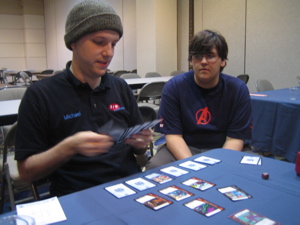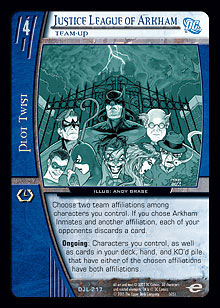The human brain is a wonderful thing. It is populated with thousands upon millions upon billions of pieces of data, which individually are each completely and utterly useless.
Does it matter that I am aware of the Marquis of Queensbury? No. Even at a stretch, no. It’s just a name, and without other little bits of data, it means nothing.
With a few connections between these tiniest scraps of information, one might build up some sort of awareness that there is a sport called boxing and that the Marquis of Queensbury was the fellow who came up with the rules for it (in what must have been all of about ten minutes in the time between the hunting, shooting, fishing, and oppressing the lower classes that the landed gentry engaged in during the nineteenth century).
Flesh out that set of links further and you might come to make acquaintance with the idea that Oscar Wilde, the great Victorian wit and playwright, was ultimately jailed for certain dalliances with the Marquis of Queensbury’s grandson.
It only takes a little further imagination to wonder whether the Marquis of Queensbury would have followed his own rules when giving Wilde what for in a bout of upper class Victorian fisticuffs.
Sooner or later, if you link up enough individual atoms of seemingly inconsequential truths, you can create interest, ideas . . . whatever you want. Everything in our experience is linked with everything else. For this article, I began without the remotest clue of what I would be writing. I let my mind wander. Having played TCGs for a long time now, I find that if I allow my poor brain enough scope for meandering from topic to topic, sooner or later I will see some sort of an analogue with card games.
In this instance, I found myself thinking about the creative process of deckbuilding. As more and more cards become available to us, there are more and more tiny elements and hence more and more combinations available to us. While this can make deckbuilding a little trickier, it also affords us that much more variety and potential for true individuality in what we do. With a whole new set just around the corner, there is a whole lot more potential than ever before for each of us to go in our own direction with new Vs. decks.
Creativity is a difficult concept to pin down, and while the fruits of its more bounteous harvests are certainly worth striving to get a taste of, they can take some cultivation. In the same way that letters are meaningless until they become words, and words are largely without import until they convey meaning in sentences, paragraphs, Vs. articles, or whatever, cards in isolation aren’t enough to make decks. With deckbuilding, everything is about synergy.
 At the most basic level, this means picking a bunch of characters that are on the same team so that they can team attack, reinforce, and use some of the niftier plot twists around. On occasion, though, wider synergies can be exploited, and it’s some of these creative interpretations of the idea of “teams” that interest me the most. Michael Jacob demonstrated in devastating fashion in his Top 8 draft at $10K Toronto that taking functionally synergistic cards can be just as powerful as being regularly teamed up. In Bremen just before Christmas, Maik Stich’s GLEEVIL build utilized Hard Sound Construct in a similar vein as Dr. Light, Master of Holograms in his romp into the Top 4. If characters’ abilities work well enough together, then the potential losses of no reinforcement can easily be outweighed.
At the most basic level, this means picking a bunch of characters that are on the same team so that they can team attack, reinforce, and use some of the niftier plot twists around. On occasion, though, wider synergies can be exploited, and it’s some of these creative interpretations of the idea of “teams” that interest me the most. Michael Jacob demonstrated in devastating fashion in his Top 8 draft at $10K Toronto that taking functionally synergistic cards can be just as powerful as being regularly teamed up. In Bremen just before Christmas, Maik Stich’s GLEEVIL build utilized Hard Sound Construct in a similar vein as Dr. Light, Master of Holograms in his romp into the Top 4. If characters’ abilities work well enough together, then the potential losses of no reinforcement can easily be outweighed.
As the card pool increases with every set, relatively minor types of card abilities become more fully supported, such that if one really wants to go crazy with an idea, there is more and more potential to do so. For me, this is kind of exciting. Every now and then, a card gets printed that I feel should at some point be quite absurdly good, but the support it needs just isn’t there yet. As long as more and more sets come out, such ideas frequently get fleshed out. Other times, something comes along to trump it before it could ever get started. For every deck I build, there is a whole picnic hamper of tasty treats lying around in my brain just waiting to be eaten as soon as UDE supplies us with some suitable plates.
 As a little illustration, I want you to think for a minute about Justice League of Arkham. At first glance, it appears pretty innocuous—a Team-Up that can’t be flipped until turn 4, with a bonus ability that is fairly underwhelming . . . for most. Personally, I consider myself whelmed by this Arkham Team-Up, and not just due to the great piece of artwork. Here we have a plot twist that can cause one’s opponent to discard before the resource step. This becomes pretty powerful if one can completely empty an opponent’s entire hand. At that point, he or she can’t play a resource or a character for the turn. Technically, the opponent could play a reservist, but that means that he or she will actually drop a resource for the turn. Not a good thing.
As a little illustration, I want you to think for a minute about Justice League of Arkham. At first glance, it appears pretty innocuous—a Team-Up that can’t be flipped until turn 4, with a bonus ability that is fairly underwhelming . . . for most. Personally, I consider myself whelmed by this Arkham Team-Up, and not just due to the great piece of artwork. Here we have a plot twist that can cause one’s opponent to discard before the resource step. This becomes pretty powerful if one can completely empty an opponent’s entire hand. At that point, he or she can’t play a resource or a character for the turn. Technically, the opponent could play a reservist, but that means that he or she will actually drop a resource for the turn. Not a good thing.
I spent more time than was probably entirely appropriate over Christmas trying to engineer a situation where I could reliably empty an opponent’s hand on turn 4 or 5. On turn 5, with T. O. Morrow and Rama-Tut, Pharaoh from the 30th Century, I was getting somewhere, and Devil’s Due alongside Slaughter Swamp all helped.
Ultimately, I decided to step back from the battle for now. The Golden Age format seemed just too fast for this sort of idea to become truly competitive. The time wasn’t a waste, though; there were plenty of powerful synergies found during this exploration process. By learning that many more “letters” in the form of cards and “words” in the form of combinations of cards, I got that much closer to spelling the sentence, “Oops, I guess I win, then.”
Throw enough monkeys at enough typewriters and—given enough time—you’ll get the complete works of Shakespeare. Get rid of most of the monkeys and leave things for the time it takes to watch all the good bits of the Star Wars franchise, and you’ll get your next Two Turns Ahead.
While you wait for your first glimpses of X-Men, I would urge you to get to know some of the less-played cards in the earlier sets. If you are the person to spot the key synergy when the new set arrives, great. If not, I guarantee that your time will not have been wasted.
Have fun and be lucky,
Tim “Mind Doesn’t Just Wander, it Hikes” Willoughby
timwilloughby@hotmail.com